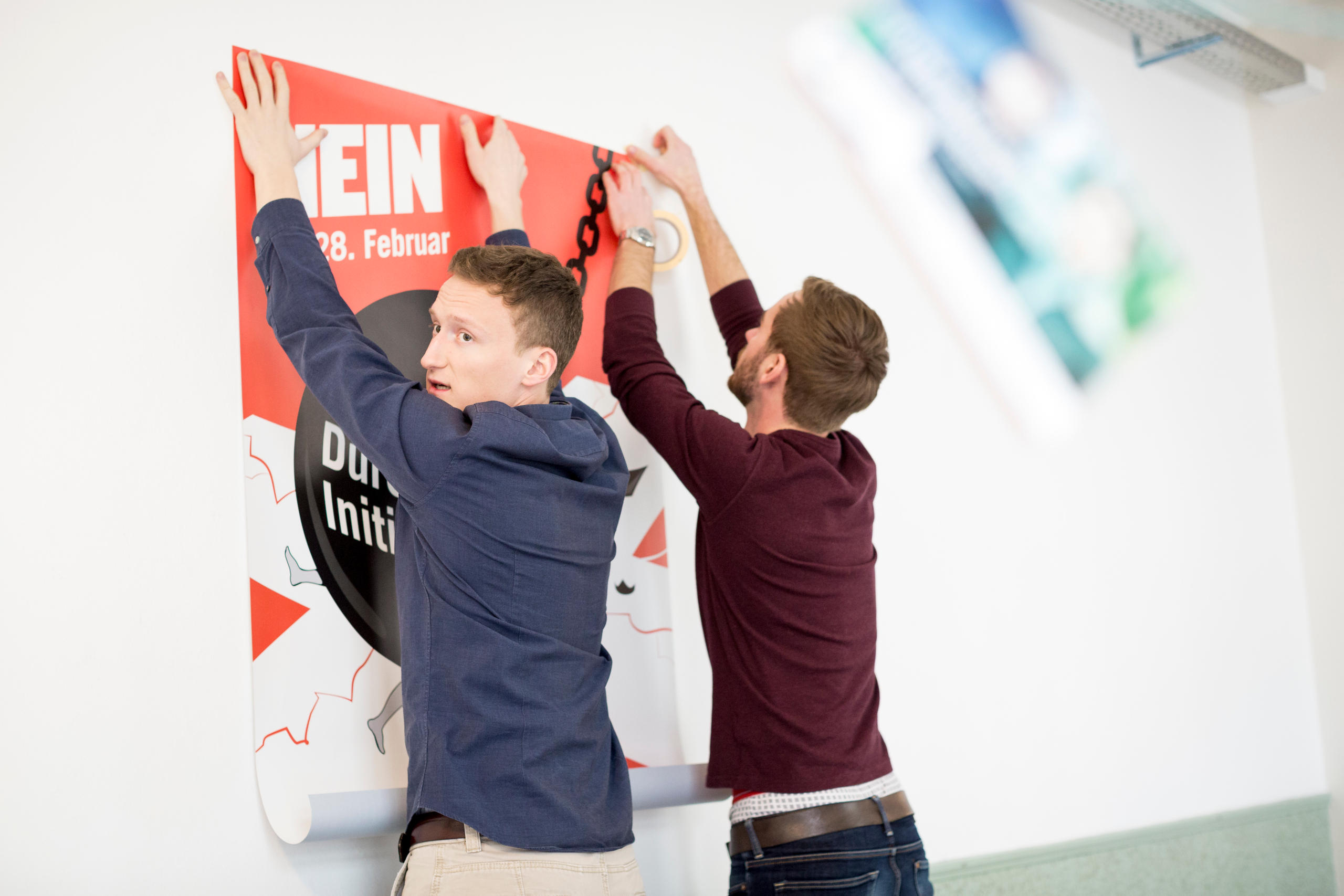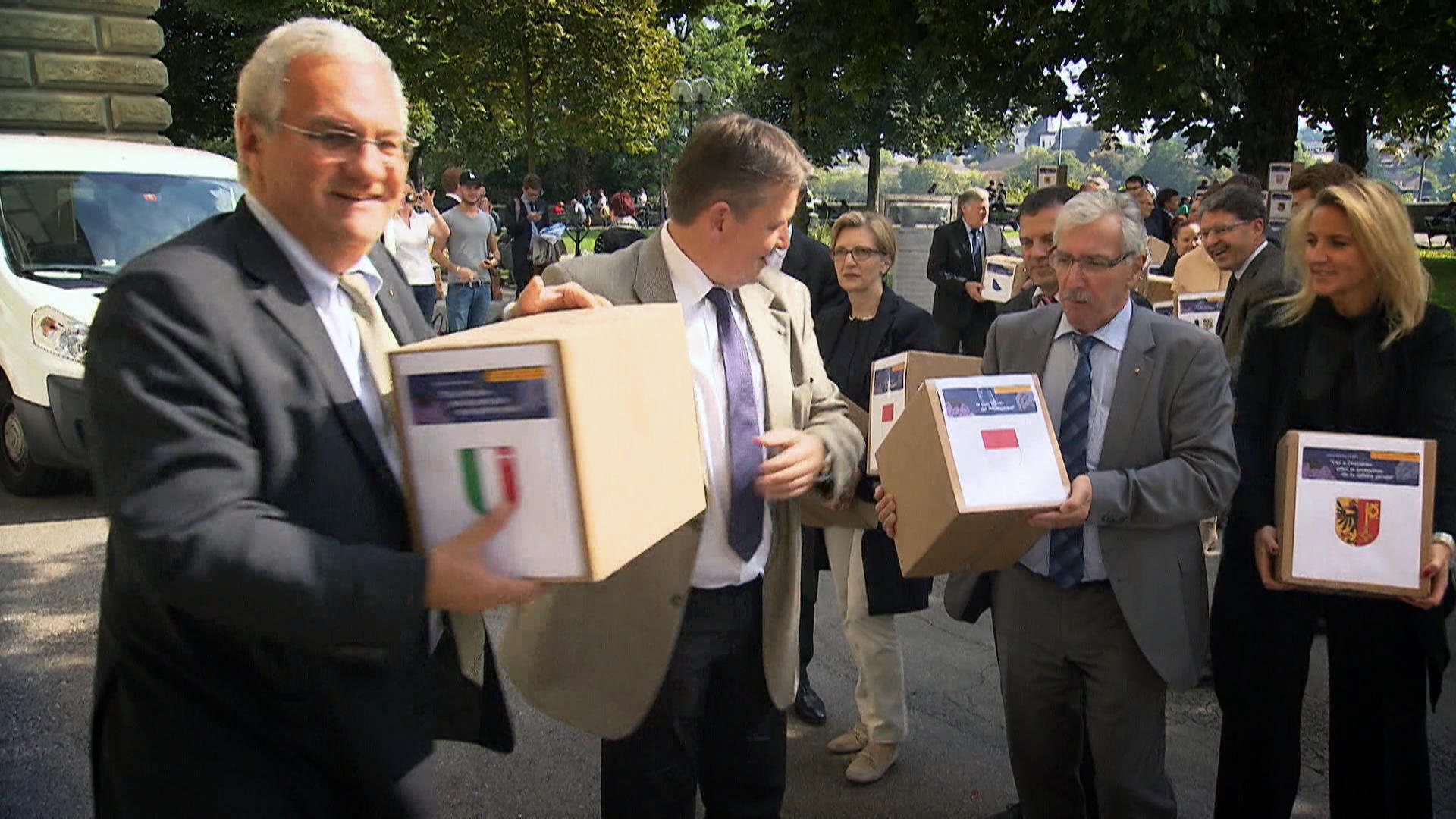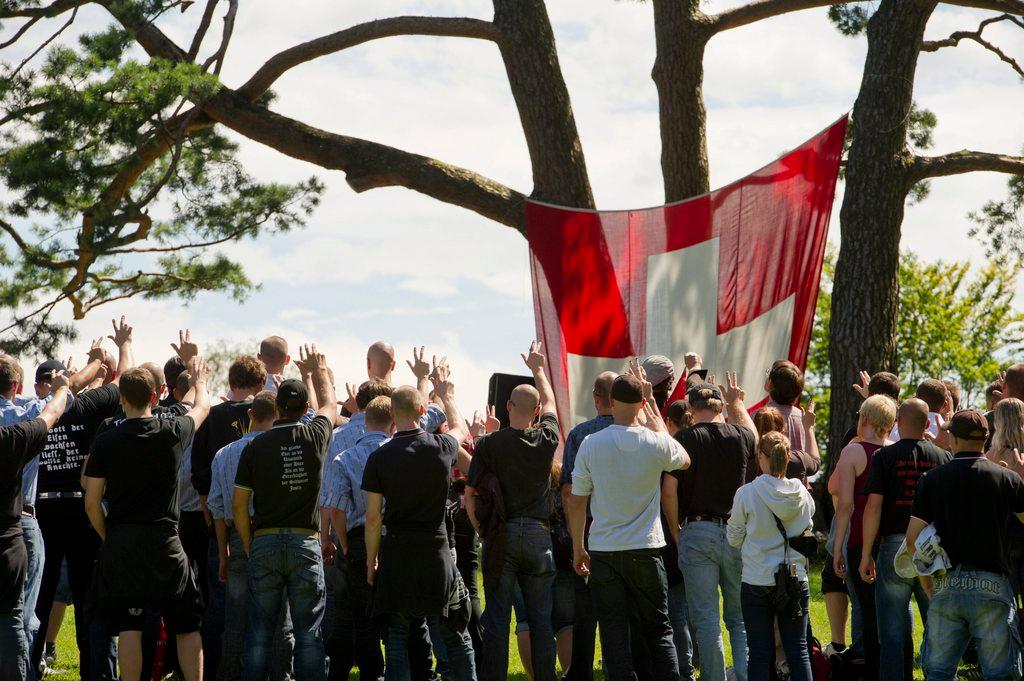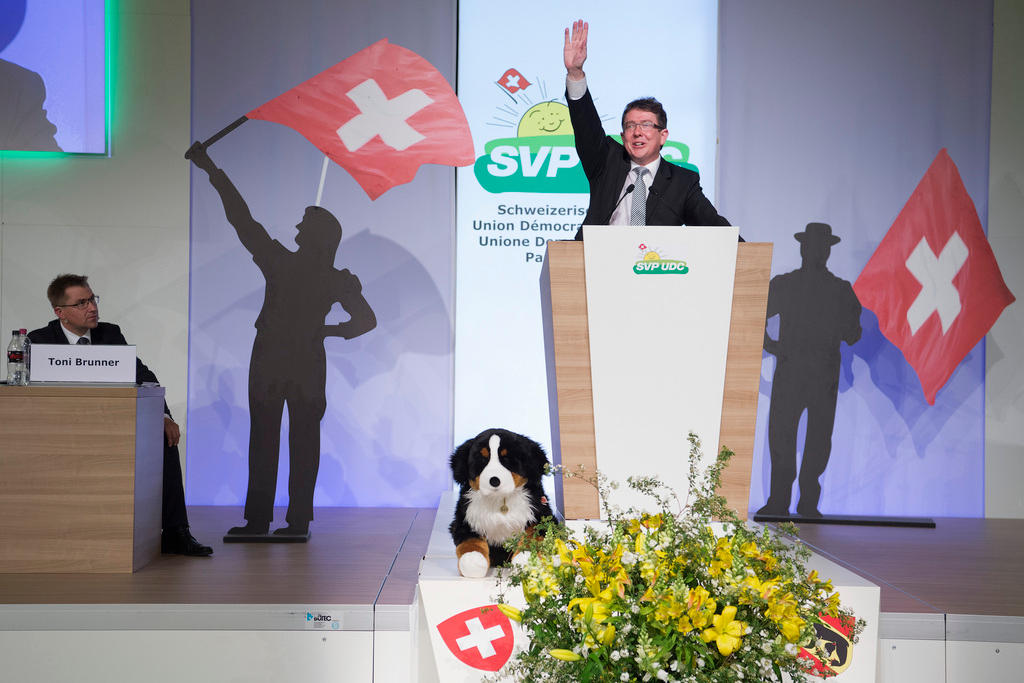Top slot plus sharp criticism for Swiss democracy

A new study ranks Switzerland for its political participation rights in unchallenged first place. But the study by a German foundation also points a finger at Switzerland’s sore spot – its decades-long lack of financial transparency.
For the first time, an independent international institute – the German-based Bertelsmann FoundationExternal link – has compared the direct democracy rights of 41 countries within the Organisation for Economic Co-operation and Development (OECD) and/or the European Union (EU).
OECD members include economically and democratically developed world countries: most European countries (including Turkey and Israel), countries in Asia (Japan, South Korea), the Americas (Canada, USA, Mexico and Chile) and Oceania (Australia and New Zealand).
As part of a comprehensive study on sustainable governance, which includes a variety of criteria, the studyExternal link compares the binding political participation rights of each country. The study ranks Switzerland first worldwide in terms of its people’s direct democratic rights. Of the 41 political systems in the study, only Switzerland achieved the maximum score of 10.
“This mode of decision-making has many advantages,” write the authors of the Bertelsmann study, stressing that it “hinders the development of a tyranny of the majority” and leads to “a high level of satisfaction, creating strong citizen identification with the political system”.
Following Switzerland in the rankings were Latvia, Lithuania, Slovenia, and the United States (all with a score of 8; no country got a 9.); and Bulgaria, Italy and Poland (7). At the bottom of the rankings came Denmark and the Netherlands (4), as well as Turkey and Norway (2). According to the Bertelsmann Stiftung study, oil-rich Norway “makes no provision for direct citizen participation in the form of legally binding public votes or citizen referendum initiatives”.

War of the rankings
For years, institutions of all sorts have been outdoing each other by publishing studies that measure and compare the performances of political, social and economic systems. These include the competition and global innovationExternal link rankings by the World Economic Forum (WEF), the freedom index of the American think tank Freedom HouseExternal link, or more recently, the “friendliness index” of the InterNations InstituteExternal link, which has examined the living conditions for foreigners in 67 countries. (It ranked Taiwan as the friendliest, and Switzerland as the third least friendly.)
With its “Intelligence Unit”, the British weekly “The Economist”External link regularly provides exciting global analysis. However, it’s not uncommon for such studies to focus on (convenient) external criteria – like the degree of organisation of trade unions – to measure political participation. This can lead to a country like Norway – where citizens rarely have a say at the polls and the political cadres have massively lost their representative nature – being named an “almost perfect” democracyExternal link, where political participation by citizens receives the maximum score.
Stumbling blocks
So in terms of reliability, these studies need to be taken with a grain of salt. Nevertheless, the effort by the Bertelsmann Foundation as part of the “Sustainable Governance Indicators”External link is interesting – and not just because of the new direct democracy ranking. By answering clear questions about legally binding people’s rights, the foundation’s researchers tried to exclude any dubious answers.
Yet probably not all of the experts understood what a popular initiative is, exactly. For example, for Sweden it was reported that popular initiatives for national referendums are rare, but that they do occur – which is neither legally nor politically true. In Sweden this people’s right simply doesn’t exist – at least not yet.
In the case of Malta, however, it was stressed that the citizens cannot trigger referenda through the collection of signatures. Again here, the opposite is true: the people initiated the spring 2015 vote on bird hunting.
Poor financial transparency
More interesting are the comments about front-runner Switzerland: the evaluation states that “very few voters (40-50%)” take part in the referendums, which from the figures alone is illogical. Another studyExternal link makes clear that only very few Swiss (less than 10%) have not participated in a referendum or election vote in the past four years.
A valid argument is the sharp criticism of the lack of financial transparency in Swiss politics: in this regard, Switzerland comes bottom of the table.
The Bertelsmann ranking of people’s democratic rights should be seen as a first independent attempt to evaluate and compare the democratic political performances of countries, particularly their participation rights, in the context of a larger study. And just like the democracies themselves, the country comparisons also have a lot of room for improvement.
Translated from German by Susan Misicka

In compliance with the JTI standards
More: SWI swissinfo.ch certified by the Journalism Trust Initiative




You can find an overview of ongoing debates with our journalists here. Please join us!
If you want to start a conversation about a topic raised in this article or want to report factual errors, email us at english@swissinfo.ch.